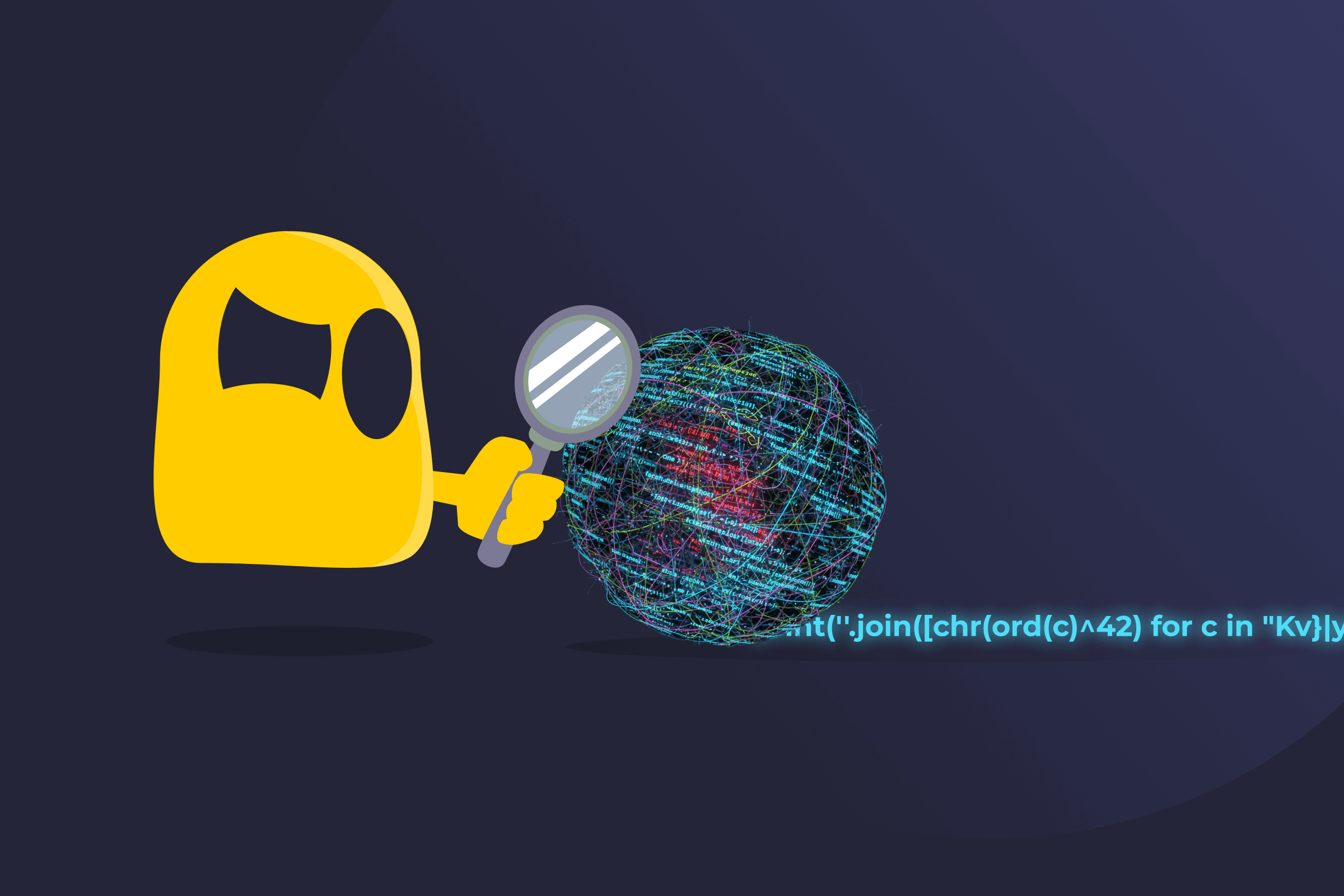Deobfuscate

Deobfuscate Definition
Deobfuscation is the act of turning scrambled or deliberately confusing code back into a readable form. Attackers, software developers, and security tools often obfuscate code to hide how it works. They do it to protect intellectual property or to conceal malicious behavior. Deobfuscation removes that protection so analysts, researchers, and developers can see the code’s true logic and purpose.
What Can Deobfuscation Be Used For?
- Uncovering malware: Reveals hidden commands and payloads in malicious software.
- Analyzing vulnerabilities: Exposes security flaws concealed through obfuscation.
- Investigating IP theft: Confirms whether proprietary code was copied or altered.
- Checking supply chains: Verifies that packaged or third-party code hasn’t been tampered with.
- Improving software: Helps developers interpret and optimize unclear or outdated code.
Limitations of Deobfuscation
- Incomplete results: Some advanced obfuscation methods cannot be fully reversed, leaving parts of the code unclear.
- High time demand: Manual analysis can be time-consuming for large or complex programs.
- Tool limitations: Automated deobfuscators may not support every language or obfuscation technique.
- Evolving methods: Obfuscation techniques change quickly, so tools and skills can become outdated.
- Legal restrictions: Deobfuscating proprietary software without permission may violate laws or agreements.
Read More
FAQ
Deobfuscation itself isn’t illegal, but it depends on how it’s used. Security researchers often deobfuscate code to study malware or check for vulnerabilities, which is legal. It can become unlawful if done to steal intellectual property, break software licenses, or bypass security protections without permission.
No. While many obfuscation techniques can be undone, some are too complex or layered to fully break down. Analysts may recover parts of the code, but it’s not always possible to get full clarity.
Several tools can assist with deobfuscation, depending on the type of code. Analysts often use disassemblers and decompilers such as IDA Pro, Ghidra, or JADX to turn code into a more readable form. Debuggers like x64dbg or OllyDbg help observe how programs run in real time, while specialized unpackers and string decoders reveal hidden content.
Yes. You often need to have a good understanding of how programming works and how software is built. Many tools can help you deobfuscate, but complex obfuscation methods usually require experienced analysts to interpret and work through the code.
Deobfuscation makes code that was intentionally made confusing easier to read and analyze. Decryption unlocks data that was mathematically protected using keys. While both reveal hidden content, decryption depends on encryption keys, and deobfuscation works by reversing code changes without keys.

 45-Day Money-Back Guarantee
45-Day Money-Back Guarantee